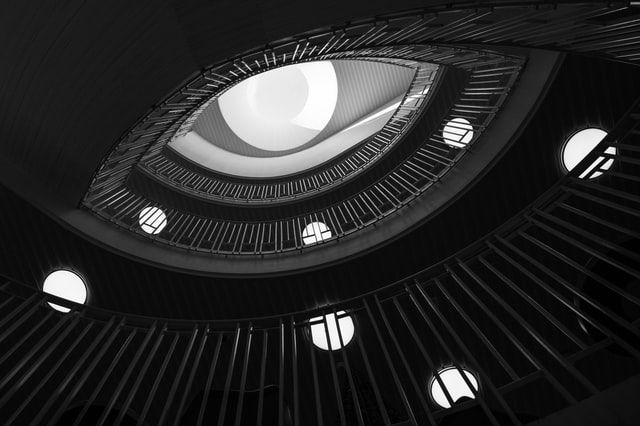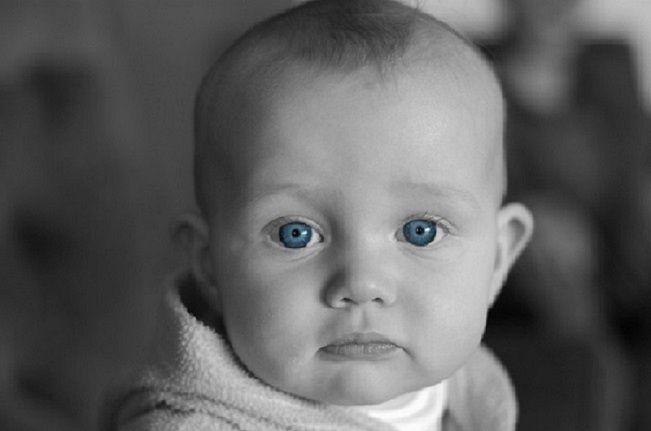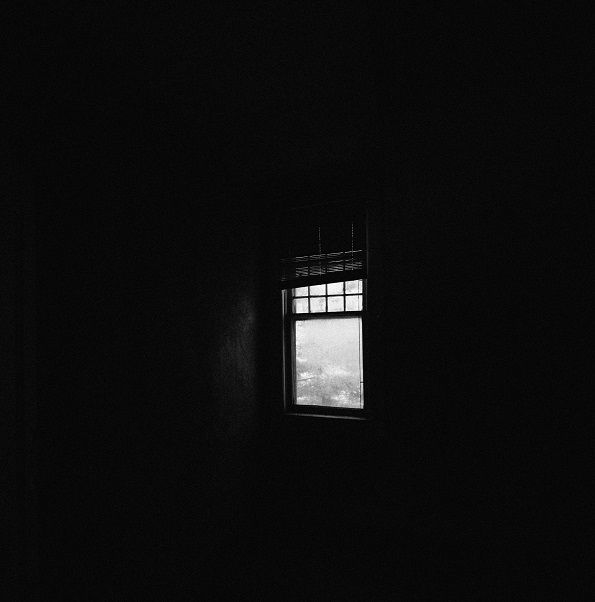Depression From an Energy Point-of-View
How Energy Frequencies Can Trigger Depression
Disclaimer: I am not a medical professional. Over decades of healing experience, I describe here what I see energetically, in addition to my 70 years of life experience. These are solely my own observations.
Understanding and dealing with depression is a vast field of study, as there are infinite forms of depression and many levels of severity. What I offer you is a different perspective on the causes of depression.
For someone who suffers with depression, it can seem as though the cause is infinite, and their search for a resolution becomes never-ending. This is because there ARE infinite reasons for its cause, but what they all have in common is one mechanism: energy frequencies triggering chemical reactions in the body, which in turn cause chemical imbalances.
Where do the energy wavelengths come from that trigger these chemical reactions? They naturally happen within our own bodies, as we are basically pure energy, and every thought we have involves energy vibrations. We all have an “energy weather system”, as I call it. We are also always walking through the energy weather systems of others, and every interaction we have with another involves our wavelengths of energy interacting with theirs.
Finally, all of us are affected by the global consciousness, as we’re constantly absorbing energy wavelengths from our environment, and always walking from one cloud of energy into another.
Energy frequencies are a constant variable in our lives, but because we don’t see them, we don’t recognize or even acknowledge them.
Energy really is everything.
Perceptions Are Key in Depression

All those energy frequencies you experience daily, in all aspects of your life, end up shaping your perception of your life experiences; in addition, they also shape your perception of what others are thinking. Then based upon these perceptions, we construct our minds to judge what is and what isn’t important to us.
So, this combination of energy frequencies from people, experiences and events we constantly absorb plus our perceptions (which have already been shaped by our entire life’s previous exposure to energy frequencies) cause the triggers that are constantly activating chemical reactions within our bodies. This causes our brains to search for reasons why we feel the way we do, such as depressed or afraid. Most of us will then do what humankind has always done: either condemn ourselves and/or others around us.
Energy frequencies plus our perceptions equal chemical reactions. This equation is the actual physical cause of depression, why you feel depressed.
The chemical reactions then fortify the thoughts that are creating repetitive loops of thinking - in which we get trapped. Yes, these loops can be negative thoughts triggering depression, but the loops can also be positive thoughts triggering happiness.
Now you can see WHY depression is extremely difficult to treat, as there really are infinite causes; and since each person is divinely unique, the same vibration that you and another person absorb at the same time will result in different chemical reactions within your respective bodies, even if the other person is your identical twin.
Energy vibrations are always deeply affecting us.
Childhood Experiences Affect Us Deeply
Every moment of every day we’re bombarded with a multitude of energy frequencies – from the moment of conception, really. We absorb these frequencies from social interactions in our home, in the neighborhood, at school, and at the playground. We deal with rejection based on any number of personal factors, such as disabilities, looks, and race. During that time, we’re also dealing with the greater aspects of our societies regarding religion and the social-political. All of this causes us, at a very early age, to judge ourselves and question, “Do we fit in?”
The truth is this: most depression is instituted by the sensation of rejection or some form of inadequacy in relationship to how we interact in society.
What we learn in childhood sets our perceptions (about ourselves and others) for the rest of our lives. It's a lot to deal with, and it’s truly a testament to the human design that we are relatively sane by the time we reach adulthood.
We are a miracle.
Here’s a brief example to show exactly how a particular energy wavelength can affect a child and help shape their perceptions. Imagine a toddler, happily playing with his toy blocks. His father comes home from a rough day at work and trips over some of the blocks, and yells at the child, “Get these toys off the floor!”
The child, who until then had a happy and joyful vibration while playing, now feels the angry vibration from his father. There’s confusion in the child’s brain as he starts analyzing what he did wrong (of course, he’s too young to consider what he did right in this situation).
The child’s consciousness will then take the angry vibration he feels from his father into either “Daddy doesn’t like me” or “I’m a terrible person”, triggering a chemical reaction of fear and confusion. The child then spirals further downward in his emotions. That moment is like taking a picture with a Polaroid camera; its energy frequencies of anger, shame and guilt are seared into the toddler’s brain.

Energy frequencies and events will have the strongest effects on us when they are coupled with great intensity and intent in vibration. As an adult, the only childhood events you really remember are the ones that included intense emotions: happy, sad, angry, joyous, excited, ashamed, etc. Those energy frequencies were branded into your consciousness, and those are the moments that truly shape your perceptions of self.
One brief moment of intense energy can cause a repetitive loop of thinking to occur in your mind, due to the chemical imbalance that happens. In this scenario of the toddler being yelled at, it can cause him to spend the rest of his life either desperately trying to gain his father’s approval or the exact opposite; or it could take the form of him being hesitant to stand up to authority figures.
Or not.
It all depends upon this child’s experiences before and after that moment; his perceptions of self (up to that point and after), and what he was thinking about and the energy frequencies present in his body when the incident happened.
There are many, many variables.
Our Brain Chemistry is Constantly Being Altered
Further add in the energy frequencies from people you don’t necessarily interact with, but just pass by on the street, the store, in your office…their energy vibrations are all affecting you, and vice versa. Then add in the global consciousness, where you further absorb many unwanted frequencies and vibrations. This is because the atmosphere oscillates with the most heavily prevalent human emotions, and right now fear, anger, and insecurity are the vibrations strongest in the atmosphere.
You can be isolated on a mountaintop, miles away from the nearest person, but your consciousness connects you to all the other people feeling the same emotion you’re feeling, and you end up feeding each other’s emotions in a continuous loop. Even if you’re not feeling the emotions in the moment, they’re still affecting you in some manner.
Take anger, for example. As anger increases on this planet, your brain automatically searches for a reason to justify the anger you feel in the atmosphere – even though you have no idea you’re feeling it. You just know you need to justify the anger you’re feeling.
So, we’re constantly bombarded with energy frequencies throughout the day, which in turn are constantly altering our brain chemistry. But why does one person suffer from depression, and not another? That’s a huge question, but it boils down to this: depression happens because our bodies are *practiced* in tuning into specific frequencies, whether positive or negative. Those who suffer from depression subconsciously practice feeling the negativity they perceive others are thinking about them. They practice feeling these negative thoughts without understanding that they are tuning their cells to further seek out the negative aspects of self, thereby getting caught in a loop.
For example, if you’re constantly called stupid or ugly, your brain produces chemicals that allow you to believe those things about yourself. Your brain does not become practiced in producing chemicals which are beneficial in allowing you to believe you’re okay. You start thinking, “No one will want me”, and that, in itself, will create brain chemistry reinforcing “I’m no good”.
Your brain chemistry can reinforce the negative AND the positive.
It's a vicious cycle, and we do it unwittingly and automatically.
Whichever frequency we’re more practiced at creating as a child, that’s what we use as adults. Certain events in our life can be life-long triggers, especially if we’re caught off guard when they happen and accompanied with intense accusatory and judgmental vibrations, along with a huge volume of energy. These events can trigger a lot of feelings later in life such as, “I don’t belong”, due to low self-esteem and confusion about belonging. It’s also why you can be living a happy life as an adult, and seemingly out-of-the-blue, get hit with depression – someone or something has triggered a frequency in your body from long past.
It’s very complicated, to say the least.
The Triggers of Depression

What triggers our depression can be a minor or major event in the present, which makes us uncomfortable and moves our vibration into a different frequency. We then start moving down what I call the rabbit hole. (I call it a rabbit hole because we surround ourselves with the frequency we are practiced in feeling, and cannot reach out to find a different one which will benefit us.) That slight shift in our vibration now starts amplifying, because that minute switch is what we start paying attention to. We notice the difference, and we attune ourselves to this practiced frequency, even if it’s only 1%; we then ignore the rest of the positive vibrations.
That tiny 1% of the practiced frequency takes over and can leave you feeling depressed for a few minutes, a few days, or it can send you down the rabbit hole for a few months at a time. We then blame our depression on the event in the present time, and use it as a point of reference to justify the misery we’re in.
Deep depression occurs when we move into the darkest place within ourselves, taking ourselves to trial over and over again.
Depression can also be triggered by one’s perceptions of events taking place around them. Loneliness is probably the biggest cause of depression, because we need people around us to interact with; and when we don’t have that interaction, especially for prolonged periods of time, our brains need to find a reason for it. Unfortunately, we usually believe the reason for our loneliness is because there’s something wrong with us.
As you can see, there are many threads to depression. We need to consider the culture of the human race and how we develop, and how we continue to perpetuate judgment of self and others, leading to depression.
• How Energy Healing May Help Depression